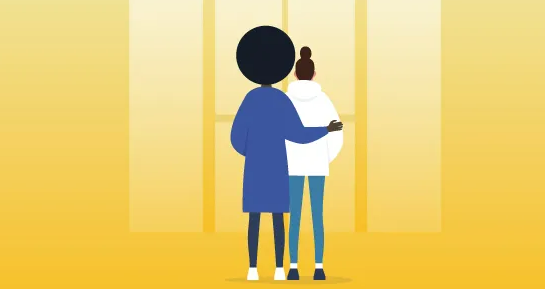What the California Budget Crisis Means for Domestic Violence Survivors
"Survivors are often making really impossible choices, of staying in or returning to an abusive home, or leaving and experiencing homelessness."

Across the country, domestic violence programs and shelters are operating with less funding and fewer resources and staff. When survivors take the difficult step to reach out for help, many are in life-threatening situations and must be able to find immediate safety and support. Stable funding is now more essential than ever to ensure that programs across the country can keep the lights on, answer crisis calls, and provide essential services for victims fleeing violence.
With California facing an estimated 38 billion dollar budget shortfall - with some projections seeing an ever higher 58 billion dollar deficit - advocates are preparing for significant and widespread budget cuts to these vital services that quite literally represent lifelines for survivors seeking refuge from violent domestic environments. Programs including county law enforcement’s victims’ services, court-appointed child advocates, rape crisis centers and legal assistance for victims of sexual assault and human trafficking all stand to have operating budgets slashed.
The cuts are likely to land hardest on those who already struggle to get help, including families in poverty, LGBTQ+ survivors and those living in rural parts of the state.
“These cuts are very, very real — it’s not conjecture, it’s happening,” said Alyson M. Messenger, managing staff attorney at Jenesse Center, a domestic violence intervention program in South Los Angeles. “We’re talking about over a million in funding that we [at Jenesse] are going to lose. Without [shelter space], so many victims will remain trapped in dangerous and abusive relationships.”
Budget reductions for organizations that serve domestic survivors don't have hypothetical consequences. When domestic violence services are reduced or eliminated, victims of violence suffer. In California alone (data updated in 2019):
- Domestic violence homicides made up about 1 in 10 homicides that took place in California.
- Domestic violence accounts for roughly 20% of all violent crimes in California
- Local domestic violence hotlines receive approximately 19,000 phone calls each day.
- 166,890 domestic violence-related calls were made to law enforcement (which is historically under-reported)
- In a single day in 2019, domestic violence shelters in California served more than 5,600 adults, with more than 1,200 having unmet needs because they did not have enough resources.
So, when this organization advocates for prison closings at a time when the prison population is declining and beds remain empty - but still staffed - ensuring services remain viable to serve domestic violence survivors is one of many important reasons why we make that argument.
For many domestic abuse survivors, losing access to those resources means potentially staying trapped in an abusive home.
“If I didn’t have those resources, I would have stayed there,” a survivor said, through tears. "I would have let him do whatever he wanted to me.”
We urge our supporters and advocates to take action on this issue and ensure your voice is heard in prioritizing these services remain open. Use this form to help protect survivors of crime and tell the California Legislature to invest $200 million in ongoing funding to backfill federal VOCA (Victims of Crime Act) funds.
Read more about the threats impending budget cuts will have on services for California's domestic violence survivors from the LA Times here --->>> Massive budget cuts leave California domestic violence survivors with few options










